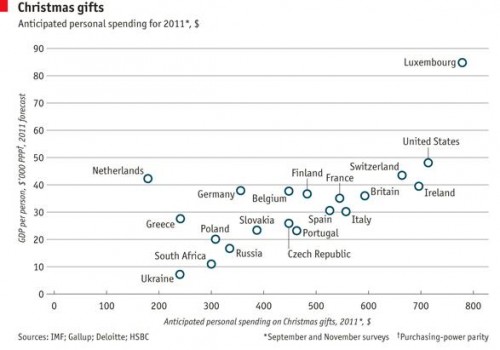Christmas Across Cultures
- Christmas Cultures
- Santa’s Evil Side Kick
- Black Pete (NSFW; trigger warning for images of blackface)
- Protestantizing Christmas Gift Giving: The ChristKind
- Politics and the Rockefeller Center Christmas Tree
- The Pagan Roots of Christianity
- Snegurochka: Santa’s Granddaughter
On Discourse:
- Have a “Gay” Holiday!
- Is Peace Free?
- “Christmas” vs. “Holiday”: The Rematch
- 12 “Mums” Makes the Workload Light
The Institution of Christmas
Racializing Christmas
- New York Times Gift Guide for People of Color
- Black Pete (NSFW; trigger warning for images of blackface)
- Holiday in the Hood
- The Hazards of Historical Amnesia
Gift Guides and the Social Construction of Gender
- Gender, Technology, and Toys ‘R Us
- Gender in Toy Catalogs
- Body Messages in Christmas-Themed Ads
- Gift Giving with Gender Stereotypes
- More Gender Gift Giving and Advertising
- Another Gendered Gift Guide
- And more Gendered Gift Guides
- Or, you could just buy her a clothesline
Sexifiying Christmas
- Sexy Women as Toys
- O-O-Oh Santa! (pictured)
Christmas Marketing
- Support the Troops. Shop Walmart?
- Fun with the 2009 Target Catalog
- Guns for Christmas
- 1930s Ad Touting Razor Technology
- Gap Thinks Girls are Vapid
Lisa Wade, PhD is an Associate Professor at Tulane University. She is the author of American Hookup, a book about college sexual culture; a textbook about gender; and a forthcoming introductory text: Terrible Magnificent Sociology. You can follow her on Twitter and Instagram.











